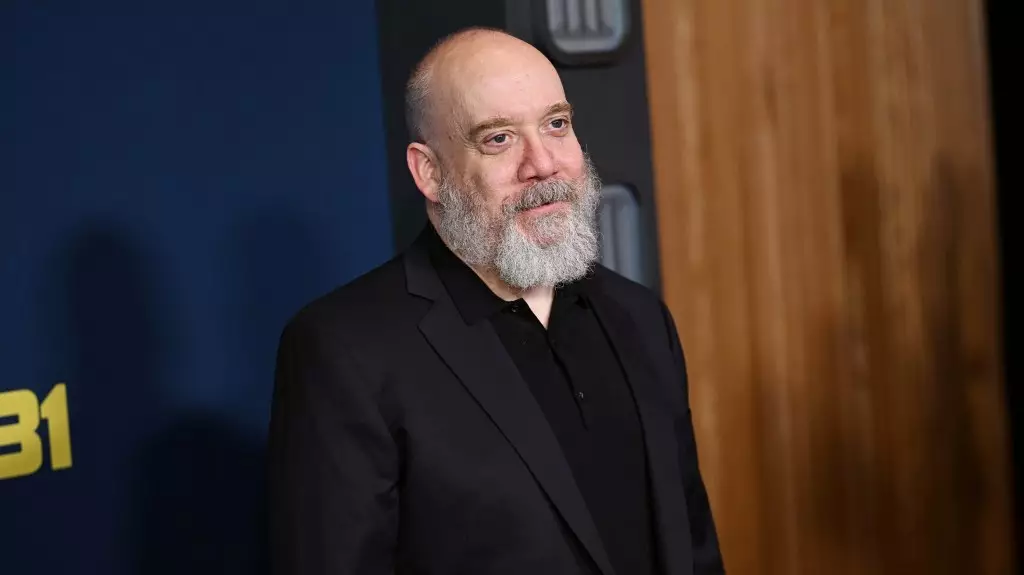In an industry often marked by fleeting fame, the recent passing of Dame Maggie Smith resonates deeply, serving as a stark reminder of the void left by profound talent. Paul Giamatti’s reflections on the production of *Downton Abbey: The Grand Finale* poignantly highlight this sentiment. Speaking as his character Harold Levinson returns in the much-anticipated third installment of the series, Giamatti conveyed a sense of both loss and reverence. He stated, “It was not the same without her, but it felt very much like in her honor in some way.” This blend of admiration and melancholy underscores the essence of storytelling; characters and actors can leave an indelible mark on audiences long after the curtains close.
The impact of Smith’s absence within the film operates on multiple levels, both personally for the cast and for the audience watching. Her portrayal of Violet Crawley, the formidable Dowager Countess, was iconic and layered. Thus, losing Smith felt like an erasure of an entire era of exceptional acting. Giamatti’s sentiment captures not just a moment of grief, but creates an emotional framework for the viewers—who will undoubtedly feel the weight of her absence throughout the film.
The Return to a Storied World
Giamatti’s surprise at being invited back demonstrates the often unpredictable nature of casting in such high-profile series. Initially, he expressed disbelief over the significance of his role. For an actor like Giamatti, well-acclaimed and experienced, it might seem unusual to regard any character as inconsequential. However, his experience illustrates a surprising richness in the fabric of *Downton Abbey*. Even characters who initially seem peripheral often possess the capacity to drive pivotal plot developments, showcasing the creators’ brilliance in character development.
Joining him are both veteran cast members and fresh faces, each contributing to the rich tapestry that has captivated audiences for years. It feels like a familial reunion, where not just characters, but the entire creative team seeks to honor a beloved matriarch not just within the narrative, but also outside it. With Smith gone, it is as if the cast shares an unspoken pact: to pay tribute to her indomitable spirit through their performances.
Layers of Meaning and Tribute
Gareth Neame, the executive producer of *Downton Abbey*, echoed Giamatti’s sentiments, emphasizing the meaningful undertones that now pervade the film following Smith’s passing. The layers of meaning woven into the storyline achieve a more poignant wake due to the realities of loss. As characters grieve their matriarch, so too do the actors, leading to a sincere tribute that reverberates beyond scripted dialogue. Neame’s acknowledgment that “the loss of the Dowager” now takes on added weight is a profound commentary on how narratives are shaped by real-life circumstances.
Such reflections challenge us to consider the way grief and loss is portrayed in the entertainment industry. Often, storytelling remains at a distance from the authentic emotional experiences that actors may undergo. However, in this case, the line blurs, creating a richer, more authentic experience for viewers. The characters navigating their grief become resonance points for the audience, allowing emotional catharsis as they reflect on their own experiences of loss.
A Cinematic Testament
As *Downton Abbey 3* gears up for its theatrical release, there is palpable anticipation not just for the storyline, but for how it will honor the legacy of one of its most revered stars. It invites audiences into a shared communal experience— one marked by sorrow, celebration, and nostalgia. The film is not merely the conclusion of a beloved series; it’s a testament to a talent who shaped a narrative like few others.
Engaging with a work of art infused with such profound emotion not only enhances the viewing experience, but cultivates a deeper appreciation for the collaborative effort that brought *Downton Abbey* to life. In paying homage to Maggie Smith, the film emerges as a richer, more textured narrative, inviting us all to reflect on the significance legacy and mortality have in both storytelling and life itself.

